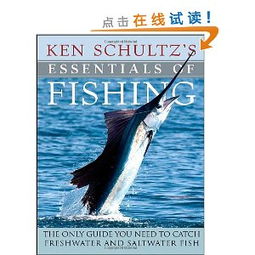Content:
Introduction: Fishing in rural rivers is a delightful pastime that offers tranquility, fresh air, and the opportunity to connect with nature. Whether you are a seasoned angler or a beginner, mastering the art of fishing in rural rivers can enhance your experience and increase your chances of catching fish. In this article, we will explore some essential tips and techniques to help you become a proficient rural river fisherman.
Choose the Right Equipment: Before embarking on your fishing adventure, it is crucial to select the appropriate equipment. Here are some essential items to consider:
a. Rod and Reel: Choose a rod and reel suitable for the type of fish you are targeting. Different fish species require different rod actions and reel types.
b. Line: Select a suitable line strength based on the fish species and the environment. Monofilament, fluorocarbon, and braided lines are commonly used.
c. Lures and Baits: Familiarize yourself with various lures and baits that are effective in rural rivers. Live bait, artificial lures, and natural baits like worms or insects can all be successful.
Select the Right Location: The location you choose can significantly impact your fishing success. Here are some tips for selecting the perfect spot:
a. Study the River: Familiarize yourself with the river's layout, including bends, pools, and riffles. These areas are often rich in fish.

b. Look for Structure: Observe areas with submerged rocks, logs, or vegetation, as these structures provide excellent hiding spots for fish.
c. Time of Day: Fish are most active during the early morning and late evening. Plan your fishing trip accordingly.
Understand Fish Behavior: To catch fish in rural rivers, it is crucial to understand their behavior. Here are some key points to consider:
a. Water Temperature: Fish are more active in warmer water. Target rivers with a stable temperature or seek out deeper, cooler waters during hot weather.
b. Food Sources: Identify the primary food sources in the river, such as insects, fish, or plants. Tailor your bait or lure selection to match these food sources.
c. Current and Flow: Understand the river's current and flow patterns. Fish often position themselves in areas where the current is slower or against the current.
Techniques for Catching Fish: Here are some effective techniques for catching fish in rural rivers:
a. Cast and Retrieve: Cast your lure or bait into the water and retrieve it at a steady pace. Adjust the retrieve speed based on the fish species and the environment.
b. Dead Bait: Use a natural bait, such as a worm or insect, and let it sit still on the bottom. This technique is particularly effective for bottom-feeding fish.
c. Jigging: Toss your lure into the water and move it in short, sharp bursts. This technique is effective for targeting fish that are actively feeding.
d. Trolling: Drag your lure or bait along the riverbed at a slow pace. This technique is great for covering a large area and targeting various fish species.
Conservation and Ethics: It is essential to practice conservation and ethical fishing when fishing in rural rivers. Here are some tips:
a. Release Fish: If you catch a fish that is not of legal size or not of interest, release it back into the water to ensure its survival.
b. Respect the Environment: Keep the area clean and leave no trace of your presence. Follow local fishing regulations and guidelines.
Conclusion: Fishing in rural rivers can be a rewarding and enjoyable experience with the right techniques and knowledge. By choosing the appropriate equipment, selecting the right location, understanding fish behavior, and practicing conservation, you can increase your chances of success. So, grab your rod and reel, and embark on an unforgettable fishing adventure in the serene beauty of rural rivers.












